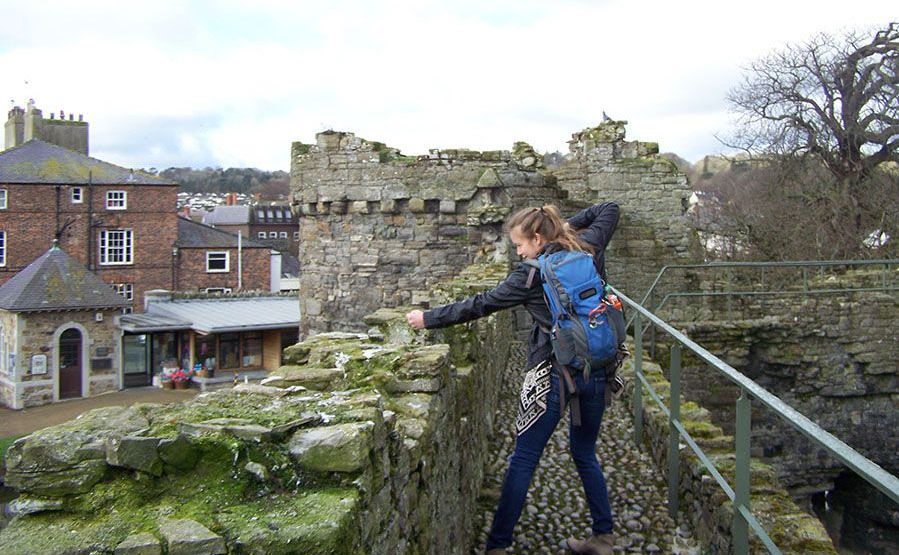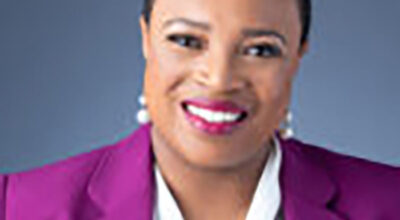Wales: Catawba students learn it’s more than just Dylan Thomas
Published 12:00 am Thursday, April 17, 2014
The global literary community is abuzz this year over the birthday of Dylan Thomas. Wales’s most renowned writer would have turned 100 this year. Thomas is famous for his poems, his BBC radio plays, and his sonorous voice that captivated American audiences before his early death in 1953.
Thomas’ centenary prompted Dr. Janice Fuller, Catawba professor of English and Writer-in-Residence, to plan an honors course on Welsh culture and to take the course’s 12 students on a nine-day trip to Wales in March. The course focused on a full range of Welsh culture with a special concentration on the Welsh-language tradition that still flourishes.
Catawba’s Associate Provost Dr. Steve Coggin and his wife Diane accompanied the group. They were joined for the entire trip by Sally Baker, who founded Ty Newydd, Wales’s national writing school, 25 years ago.
In Cardiff at the New Theatre, they watched the National Theatre Wales’s production of Thomas’s “play for voices,” “Under Milk Wood,” celebrating its 60th anniversary. During their stay in Wales, the group visited the two villages that inspired the play — New Quay and Laugharne.
In Laugharne, they explored the boathouse where Thomas and wife Caitlin raised their children and his renowned writing shed. The group ate lunch at Brown’s Hotel, Thomas’s favorite haunt for drinking and playing cards with the owners and his parents.
Allison Bumgarner said “One of the most interesting parts about experiencing the true Wales was eating cawl at Brown’s Hotel, sitting in the same place as Dylan Thomas, eating something that he probably ate regularly. This traditional soup, both delicious and nutritious, opened up the opportunity to feel like part of Wales.”
On the edge of town, the group visited Thomas’ grave, marked by a simple white cross. In the half-fog, student Patrick Gassaway read “Now,” a lesser-known Thomas poem.
In Swansea, the group lingered at Thomas’s birthplace. Geoff Haden offered them a private tour of the house he has lovingly restored, encouraging them to sit on the beds, encouraging Shaun Cammack to play the family piano. A filmmaker shot scenes of the group for a documentary about the centenary. Patrick Gassaway recited one of his own poems, Steven Gibson read his favorite Thomas poem, “Do Not Go Gentle,” and Shakeisha Gray read “Hunchback in the Park” for the camera.
Hannah Ellis, Thomas’s granddaughter, drove from her home in England to join the group at the house and the adjacent Cwmdonkin Park, where Thomas played as a boy. She spent hours with them, telling family stories about her grandfather’s life and her own continued connection to Dylan’s “sacred places.”
“Seeing where Dylan Thomas lived and meeting his granddaughter really made him seem alive to me,” said Sydney Smith. “Hannah’s resemblance to Dylan was mesmerizing. Hearing her talk about her family and the house made his work resonate even more because seeing everything helped me place it in the real world.”
Thomas’ father discouraged him from learning Welsh because he thought it would be a disadvantage in the early 20th century. At about the same time, a Welshman — David Lloyd George — became prime minister of Great Britain and championed the language. The Catawba group spent the first four days of the trip in residence at Ty Newydd, Lloyd George’s last home in Llanystumdwy, the small village in north Wales where he grew up.
The group visited Lloyd George’s nearby grave, and two West Scholars, Michelle Newberger and Anna Field, were invited into the primary school Lloyd George attended as a child, Ysgol Llanystumdwy.
“The school’s smallness fostered a sense of community in the school with the older students helping the younger,” said Michelle Newberger. “What struck me was the fluidity that the students and teachers had when switching back and forth between Welsh and English. You could see how committed the children were to the Welsh language. A lot of them seemed to be thinking in Welsh and then translating it into English. I think this is a good thing because if these children take ownership of the language at such an early age, they will most likely perpetuate it through their own children.”
The Welsh-language bardic tradition is one of the oldest continuous literary traditions in Europe. During the week, some of the most famous Welsh-language poets and musicians offered the group private performances and long conversations over dinner and in the local pub. The first night of the trip, poet and singer-songwriter Gwyneth Glyn (former poet laureate for children and a featured guest at the Smithsonian Festival) moved the group with her folk songs and talked at length with each student.
On another night at Ty Newydd, the Welsh-language bard Twm Morys (winner of Wales highest honor for poetry) played the guitar and the traditional small Welsh harp. He also explained the intricacies of cynghanedd, the sound patterns (more complex than any poetic system in the world) that have guided Welsh-language poetry since the sixth century.
“In every town we visited in north Wales, Welsh was the primary language spoken between shopkeepers and patrons with the musicality of the language flowering from every mouth that spoke it,” said Darby Reedy. “… Throughout our evening with Twm Morys, he conversed with his 7-year-old daughter, Dyddgu, solely in Welsh. Many times we tried to get her to speak English, but she was rarely willing to switch tongues. As her shyness prevailed, she would always switch back to the language she was most comfortable speaking: Welsh. The idea that a young girl would revert to speaking Welsh when she was put under the duress of spending time with 15 Americans spoke volumes about the importance of the Welsh language to the Welsh identity.”
The Catawba visitors came to learn that the linguistic battles over Welshness. During the 1960s and 1970s Welsh-language activists fought for bilingual signage, a Welsh-language television station and Welsh instruction in the schools. Thanks to them, Welsh today has more native speakers than all of the other Celtic languages combined.
One of those activists, poet, playwright and librettist Menna Elfyn, is the most famous Welsh-language poet in the world with her work translated into 18 different languages. In Carmarthen, Elfyn moved from table to table during dinner to talk to each group of students and then read her poems—beginning each poem in Welsh, switching to English, and ending in Welsh.
Then trip ended with an emotional private performance at Swansea’s Morgan Hotel by the accomplished mother-daughter duo DnA—Delyth and Angharad Jenkins playing on harp and fiddle traditional Welsh tunes as well as Angharad’s experimental compositions.
The trips to Wales began in 1997 when three Welsh poets, Nigel Jenkins, Menna Elfyn and Iwan Lloyd, brought Welsh culture to Salisbury, where they were hosted by Fuller and Shakespeare professor Dr. Bethany Sinnott. Since that time Fuller has been awarded a Summer Study grant from Catawba to study Dylan Thomas in Laugharne and has taught almost every year at Ty Newydd. In March, her fourth book of poetry, “On the Bevel,” was published by Cinnamon Press in north Wales.





